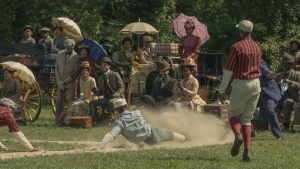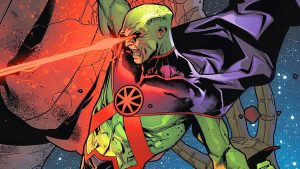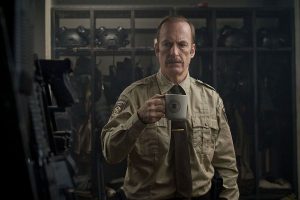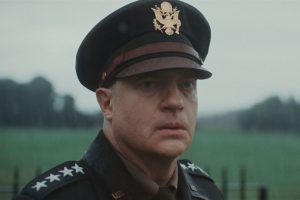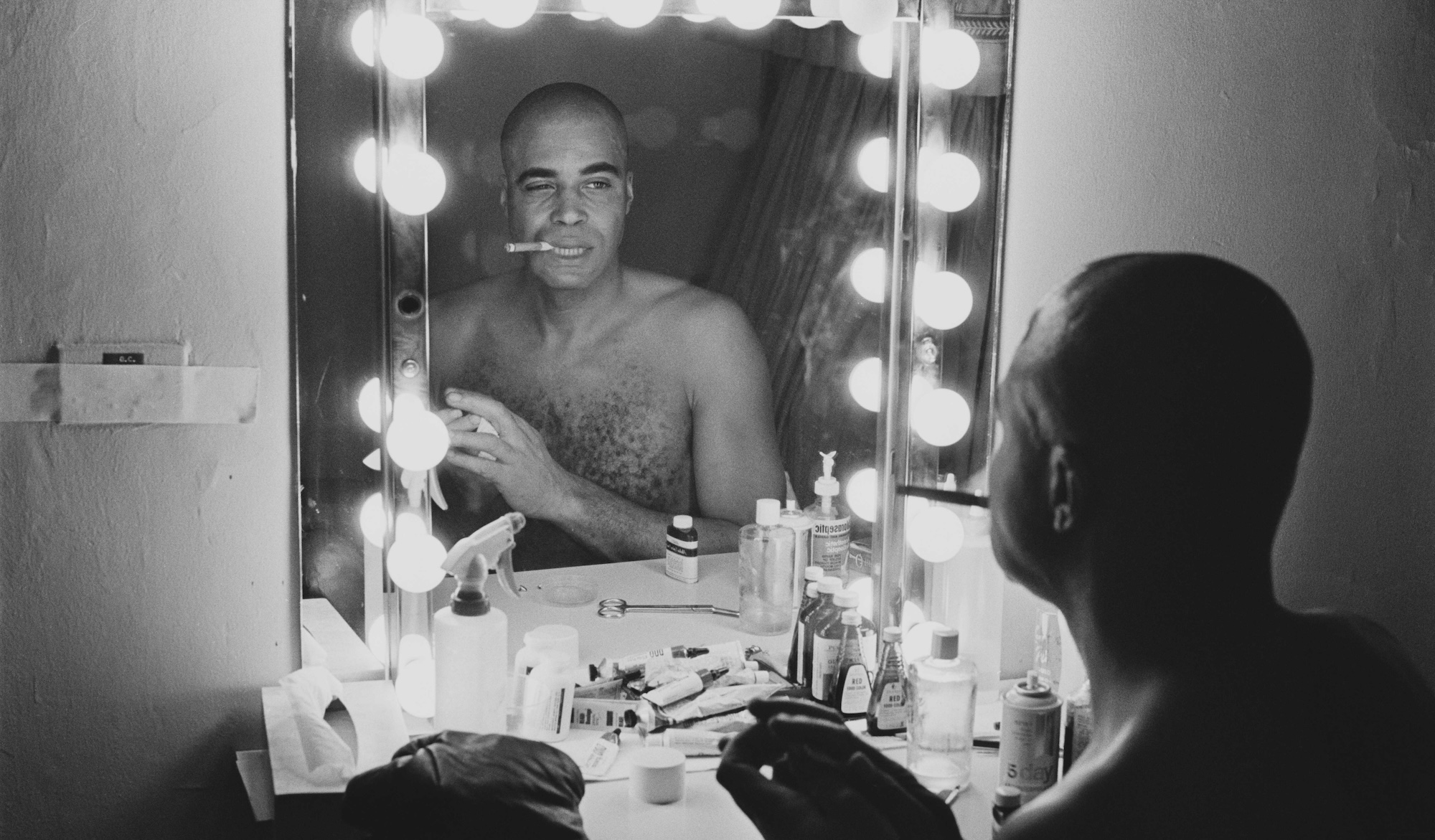
James Earl Jones, who died at age 93, is a cultural icon. He is internationally loved for roles in The Lion King, Coming to America, Roots, Field of Dreams, and the Star Wars and Jack Ryan movie franchises. The Mississippi-born actor won three Tony Awards, two Emmys, a Grammy, several Academy Award nominations, and the 2011 Honorary Lifetime Achievement Oscar. However, some of his most potent performances are not in heavy rotation at easily accessible media outlets and streamers. This is a shame because Jones leaves behind a vast and versatile artistic portfolio, and some of his finest characterizations came when he was young and working on independent films.
James Earl Jones’ voice is instantly recognizable. Filled with authority and wisdom, it effortlessly captures a palpable feel of reason. It served him well, from his early work on the ABC radio anthology series Theatre-Five through to his tenure as the reassuring “Voice of CNN.” Jones got that voice from years on stage, beginning as a theater carpenter before working as stage manager and taking on roles in production. He made his Broadway debut in 1957. By his first acting season at the Ramsdell Theater, Jones portrayed Othello. Soon thereafter he became one of the pre-eminent Shakespearean actors of the time.
Jones made his film debut as B-52 bombardier Lt. Lothar Zogg in director Stanley Kubrick’s 1964 satirical masterpiece, Dr. Strangelove or: How I Learned to Stop Worrying and Love the Bomb. He made his television debut as the first guest on Sesame Street, appearing in short films for early test audiences. It is no wonder audiences of all ages can count on Jones to deliver a trustworthy educational experience. So here are some of Jones’ work that this author regularly returns to.
Paul Robeson (1979)
Jones is the perfect actor to command a performance as Paul Robeson. Young Jones competed as a boxer, Robeson was a football player who reached the NFL. Both set new standards of excellence in classical theater. Each was gifted with a baritone strong enough to break traditional divisions and defy racist delusions. In this TV movie, Jones uses all his voices to embody the diverse aural interpreter of stage, screen, concert halls, sports fields, and international discourse. The only sound we hear far too little of is Jones’ singing voice. The movie is a filmed document of a performance of Paul Robeson: Tribute to an Artist, Phillip Hayes Dean’s one‐character play. Jones becomes Robeson, from the inside out.
Labeled “stagebound” by some contemporary film critics, the one-location setting of the film and play is still no restraint on the spirit of Robeson or Jones. Robeson, a renowned singer who made “Old Man River” his own in James Whale’s Show Boat (1936), was a civil rights activist who turned down roles perpetuating ugly stereotypes and refused to perform for all-white audiences. And his righteousness bristles under the surface of Jones’ interpretation. Yet it is never overstated. Robeson’s blacklisting in the U.S. does not evoke any bemused witticisms, nor do the historical figure’s endorsements of Joseph Stalin warrant an aria. The film captures the magic of the versatile Jones, alone on the stage, embodying every peripheral character to their core. Paul Robeson won the Oscar for Documentary (Short Subject). It was presented by William Shatner.
The Great White Hope (1970)
Directed by Martin Ritt and focusing on the central romantic dynamic, The Great White Hope holds a coveted title in the pantheon of great sports movies. Jones plays boxer Jack Johnson, the first Black world heavyweight boxing champion. He won that belt in the 15th round when previously undefeated world heavyweight champion, James J. Jeffries, went down for the count on July 4, 1910. The bout was the first boxing match with an African-American contender. The ensuing riots led to the deaths of more than 20 people. The biracial pairing was touted as “The fight of the century,” and Jones gives a performance which stands the test of time.
This is Jones’ first leading film role. As Paul Robeson encapsulates Jones live craft in a theater setting, the 1971 biographical feature may be the closest an audience gets to see Jones’ stage acting transcribed into a cinematic performance. He and Jane Alexander played the same roles when Howard Sackler’s play was first produced in Washington D.C. in 1967, and when it moved to Broadway’s Alvin Theatre in 1968. The author won the Pulitzer Prize for Drama. Alexander and Jones took home Best Acting in a Play awards at the 1969 Tonys. When they both were nominated at the Oscars, Jones was the second Black man nominated for Best Actor, after Sidney Poitier. His performance still packs a punch too.
Matewan (1987)
Jones is dynamic as “Few Clothes” Johnson in director John Sayles’ Matewan. “Few Clothes” is no stranger to the racial epithets thrown at him by belligerent union members, but has “never been called no scab.” Although he was tricked into non-union work by Stone Mountain Coal, “Few Clothes” insists he can “go ton-to-ton loading coal as any man here. When I do, I want the same dollar for the same work.” This personal pride amidst institutional humiliation defines bravery, and the look on Jones’ face betrays the visceral fear he is fighting down. There is a principle here, and no amount of bigoted dehumanization is enough to block a worker from earning enough to eat.
Jones allows “Few Clothes” to grow into his arc on scorched soil. “Few Clothes” is no enemy. He is a worker. The union enemies don’t work, and they don’t pay a decent wage. Matewan provides a bleak but brilliant view of the labor wars, and Jones holds it together with pure physical and intellectual strength—the kind that comes with numbers. Sayles’ story of railroad town union organization is criminally underseen, even when it first hit theaters. It remains an inspirational reminder that success against business is a group effort.
The Bingo Long Traveling All-Stars & Motor Kings (1976)
The Bingo Long Traveling All-Stars & Motor Kings is exciting, contagious, and historically significant. On the surface, the film is about disregarded excellence on the playing field. Beneath lies a strong statement on emerging Black capitalism. Based William Brashler’s 1973 novel which fictionalized stories of real Negro Leagues baseball players, director John Badham delivers a barnstorming grand slam with the power to clear both benches.
Best known for Richard Pryor’s manic performance very loosely based on real-life Boston Atlantics and Brooklyn Atlantics center fielder and catcher, Charlie Snow, The Bingo Long Traveling All-Stars & Motor Kings is grounded by Jones. He plays Leon Carter, the Norfolk Tars’ third baseman, who led the Piedmont League in hits in 1950. The film may have been a wild pitch if Billy Dee Williams’ Bingo Long high-stepped his athletic caravan to the easy temptations of flamboyant showmanship. Bingo is based on Leroy “Satchel” Paige, the Chattanooga Black Lookouts pitcher who went from the Negro Southern League to Major League Baseball when added to the roster of the Cleveland Indians. In the film, Leon is beyond thrilled when Esquire Joe Callaway (Stan Shaw) is drafted by the majors. Jones’ smile, like his voice, is a reassurance that everything will ultimately be made right.
The post Some of James Earl Jones’ Most Underappreciated Movies appeared first on Den of Geek.
